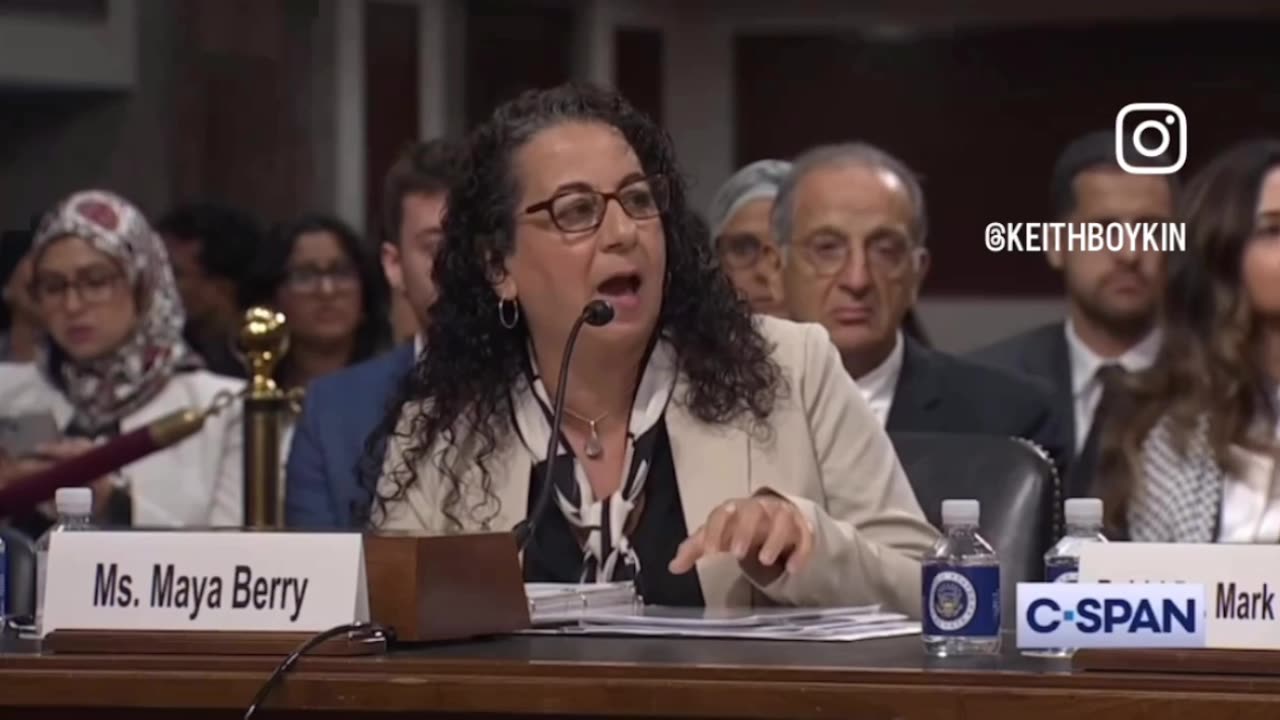Premium Only Content

Racism in Politics: The Disturbing Normalization of Islamophobia in America
The Normalization of Racism in American Politics
👇 In a recent congressional hearing on hate crimes, Republican Senator John Neely Kennedy launched a racially charged and confrontational attack on Maya Berry, the Executive Director of the Arab American Institute, accusing her of supporting Hamas and Hezbollah. Berry was invited to provide testimony regarding the increase in hate crimes targeting Arab and Jewish Americans. During the hearing, Kennedy subjected her to persistent questioning, misrepresenting her views and disregarding her explicit condemnation of violence. When Berry sought to clarify her critique of the U.S. decision to cut funding to the United Nations Relief and Works Agency (UNRWA), which provides assistance to Palestinians, Kennedy interrupted her once more and ultimately told her, “You should hide your head in a bag.” The Council on American-Islamic Relations (CAIR) swiftly denounced Kennedy’s comments, accusing him of employing anti-Arab and Islamophobic stereotypes.
This incident highlights a broader and troubling trend: the normalization of Islamophobia and anti-Arab prejudice in political discourse. Rather than addressing the pressing issue of escalating hate crimes, Kennedy weaponized Berry’s Arab identity, implying that her background made her sympathetic to terrorism—a baseless and dangerous claim.
What makes this exchange particularly concerning is how it mirrors the increasing acceptance of Islamophobia in American politics. Instead of engaging with Berry’s testimony on hate crimes, Kennedy opted to attack her identity, reinforcing damaging stereotypes that associate Arabs and Muslims with terrorism. Such stereotypes have been perpetuated for years through media and political narratives, making it easy for public figures to exploit this bigotry under the guise of policy discussions.
The normalization of Islamophobia in politics is not merely an individual problem; it is a systemic one. Politicians like Senator Kennedy maintain their positions because their narratives resonate with segments of the electorate conditioned to view Arabs and Muslims with distrust and fear. This fear has been fueled by years of biased media coverage and policies that depict Arab and Muslim identities through a lens of terrorism and violence.
Allowing this rhetoric to go unchecked perpetuates a cycle of hatred that legitimizes discrimination and marginalization. When politicians wield their influence to propagate these harmful narratives without facing significant repercussions, they foster an environment where Islamophobia becomes entrenched in public discourse. This incident underscores the critical need for accountability and a reassessment of the tolerance for such rhetoric in political arenas. Only by confronting these systemic issues can we begin to dismantle the ingrained bigotry that continues to harm Arab and Muslim communities in the United States.
-
 45:17
45:17
The Officer Tatum
7 hours agoLIVE: Scott Jennings INCINERATES CNN, DNC Union BEGS For Money, + MORE | OT Show EP 15
88.6K104 -
 14:45
14:45
Tundra Tactical
3 hours ago $1.34 earnedFirst Impression of the Labradar LX Chronograph.
20.6K -
 54:52
54:52
LFA TV
23 hours agoAnti-Trump Lawfare Has Failed | Trumpet Daily 11.26.24 7PM EST
21.1K1 -
 29:44
29:44
Standpoint with Gabe Groisman
10 hours agoEP. 59. The State of Western Militaries Today. Col. Richard Kemp
42.6K3 -
 47:24
47:24
Candace Show Podcast
5 hours agoConor McGregor: GUILTY—But Of What? | Candace Ep 111
107K232 -
 13:19
13:19
Josh Pate's College Football Show
6 hours ago $1.29 earnedThe SEC has COLLAPSED!! Updated CFP Picture with Josh Pate
18.3K1 -
 45:59
45:59
PMG
21 hours ago $0.26 earned"Hannah Faulkner and Sabrina Cardone | Empowering the Next Generation"
12.6K1 -
 1:19:57
1:19:57
Awaken With JP
10 hours agoThanksgiving for America Special - LIES Ep 67
119K48 -
 3:58
3:58
Blackstone Griddles
1 day agoLeftover Turkey with White Country Gravy
52K4 -
 42:19
42:19
Lights, Camera, Barstool
13 hours agoDoes 'Glicked' Meet The Hype? 'Gladiator II' And 'Wicked' Reviews
44.9K2